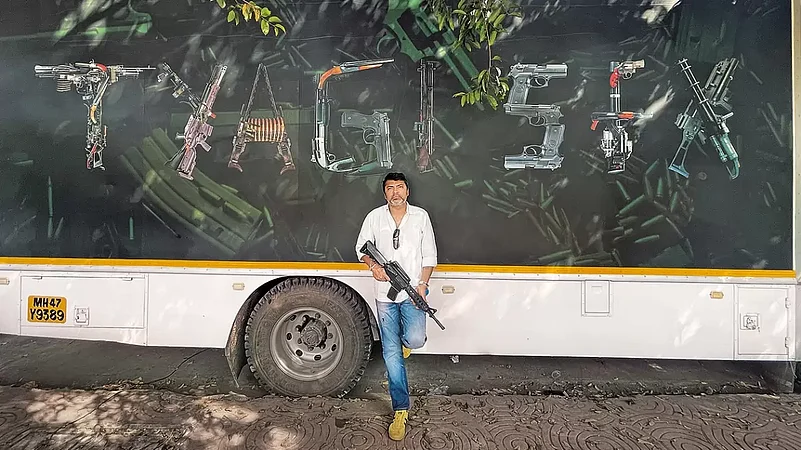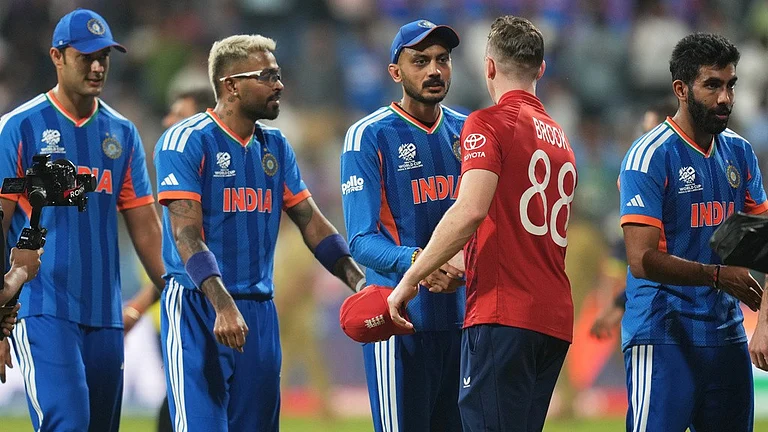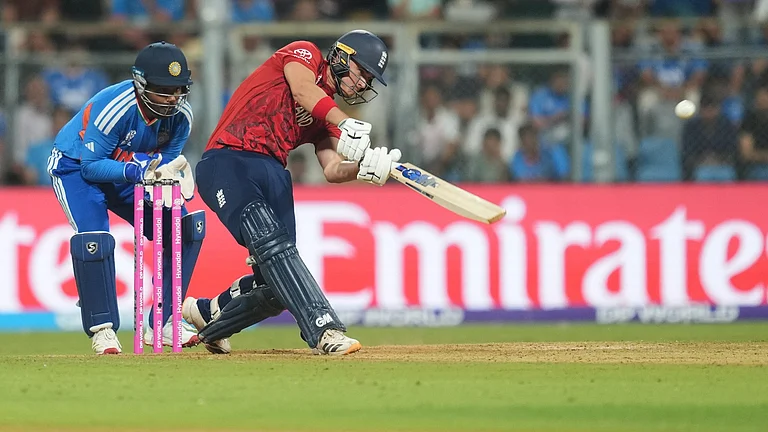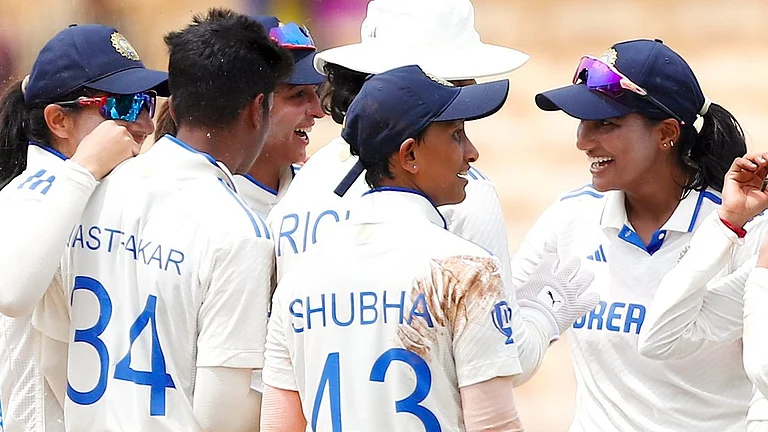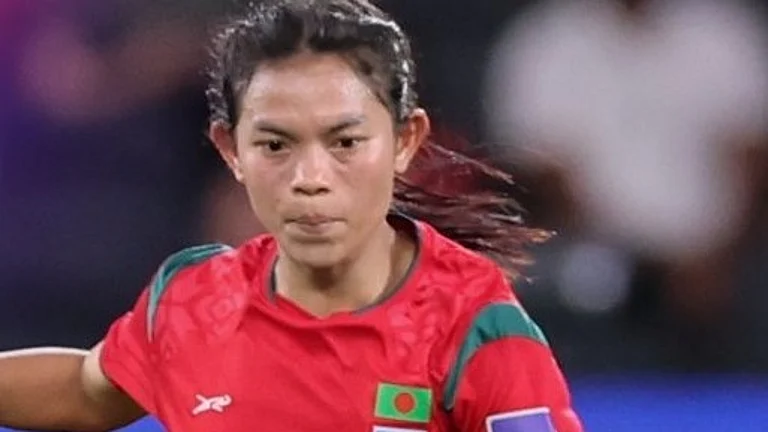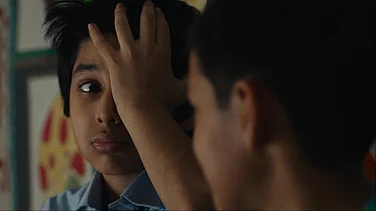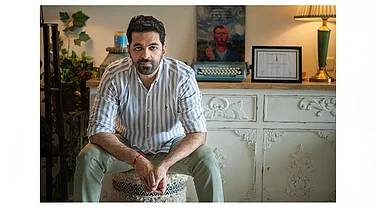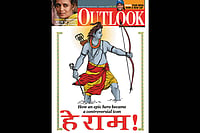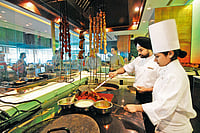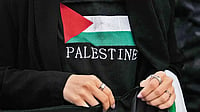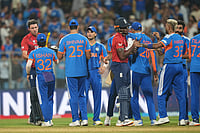In a little lane in Goregaon stands a nondescript house. In this house, they make guns. The kind that don’t kill. In another one nearby, there is a small office that has the name ‘Tyagi Guns and Special Effects’ written in letters that are fashioned from different kinds of guns.
The owner, Vishal Tyagi, a flamboyant man who wears gold chains around his neck and sports tattoos on his arms—a mantra on one and a symbol for grace, gratitude and growth on the other—has a penchant for storytelling. As an arms and explosives expert who makes and provides prop guns for films, Tyagi has ridden the wave of action films. It has been a good run so far. A large truck outside is testimony to that, modelled like a vanity van to transport guns. On the truck, there is an ode to his late father, Mahendra Tyagi. “I will always remember him,” he says.
Like many others in the below-the-line world, Vishal followed in his father’s footsteps and is now trying to cross over to the other side. He wants to be a producer and has already secured the rights of a story for his first film. At some point, he might make a film on his own life, he says. He says his father was a dacoit in Budhana in Uttar Pradesh who got a shoot-at-sight order and ran away to Bombay in 1978 at the age of 30. He says his father fought against the government. Almost like a Robinhood figure.
But that’s a part of his life he doesn’t know much about. He heard some stories on his visits to the village, later, after his father died in the 1989 studio fire in Mysuru during the shooting of the TV series Tipu Sultan. Vishal was only 11 at the time. Around 70 people died in the fire. “The newspaper carried the list of the dead and I saw his name. Those who had more burns were left behind to die,” he says.
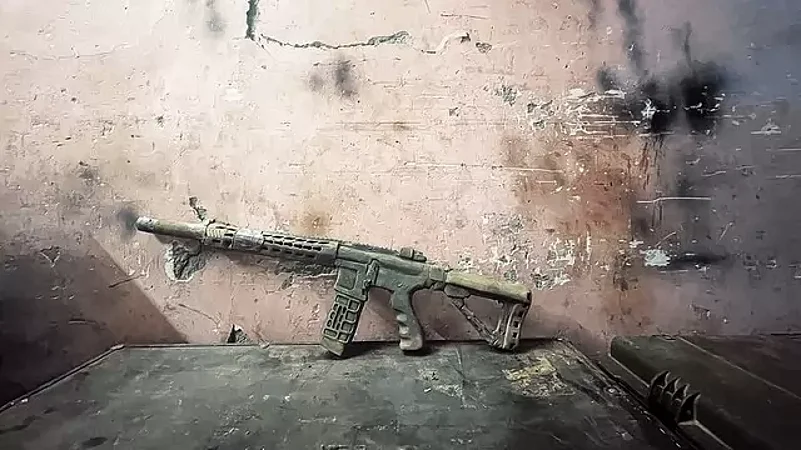
His father first stayed in Santacruz’s Golibar locality, a slum. He met a few people there. Among them was the tailor, Shabbir Master. It was at his shop in Bandra that he met people who helped him enter Bollywood as a junior artist. During the making of Mehak, his father went to the village and brought his licensed gun back with him.
That’s when his father realised that he could get paid for renting his gun. Back then, real guns were used in the films. Nobody made fake guns then. It was in the 1980s that some people started making fake guns but they didn’t know how to fire them. It was his father who got welders from Oshiwara and procured some fake guns from the local mela (fair). He said he wanted a bigger version of those guns. At first, they made double-barrelled guns and rifles because, at the time, many films had storylines that had dacoits as characters. He then found a computer repair guy who helped him improvise further with a circuit. They finally created a compact machine that could be fitted into a gun.
He was only 11 when his father died. It was assumed he knew about guns since he had grown up watching his father. His uncle helped with the business and by the time Vishal turned 14, he was already managing a part of the business. “I was 19. I carried Rs. 5.5 lakh in cash and life was cool,” he says. They ventured into SFX in 2008. “I wasn’t born with a silver spoon,” he says. Vishal is also part of the Movie Action Dummy Effects Association (MADEA). The Arms Rules, 2016 has made things difficult for suppliers like Tyagi because it brought the formerly-ungoverned prop weapons under arms licencing. The warehouse has all kinds of guns for all kinds of stories. “It is the stories that are violent, not my guns” he says.
(This appeared in the print edition as "Non-Violent Guns")


